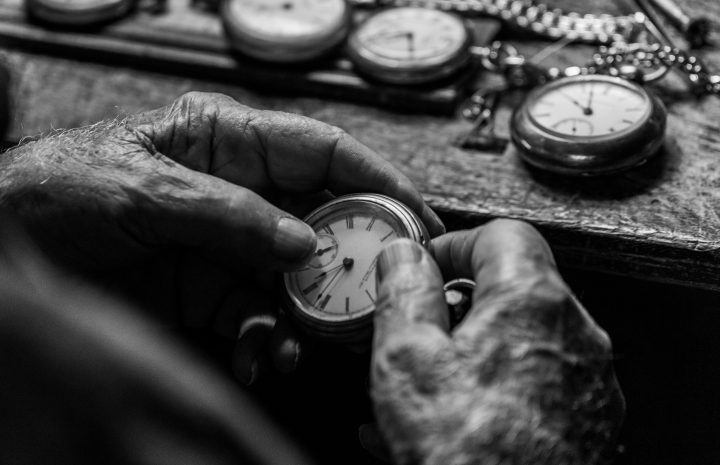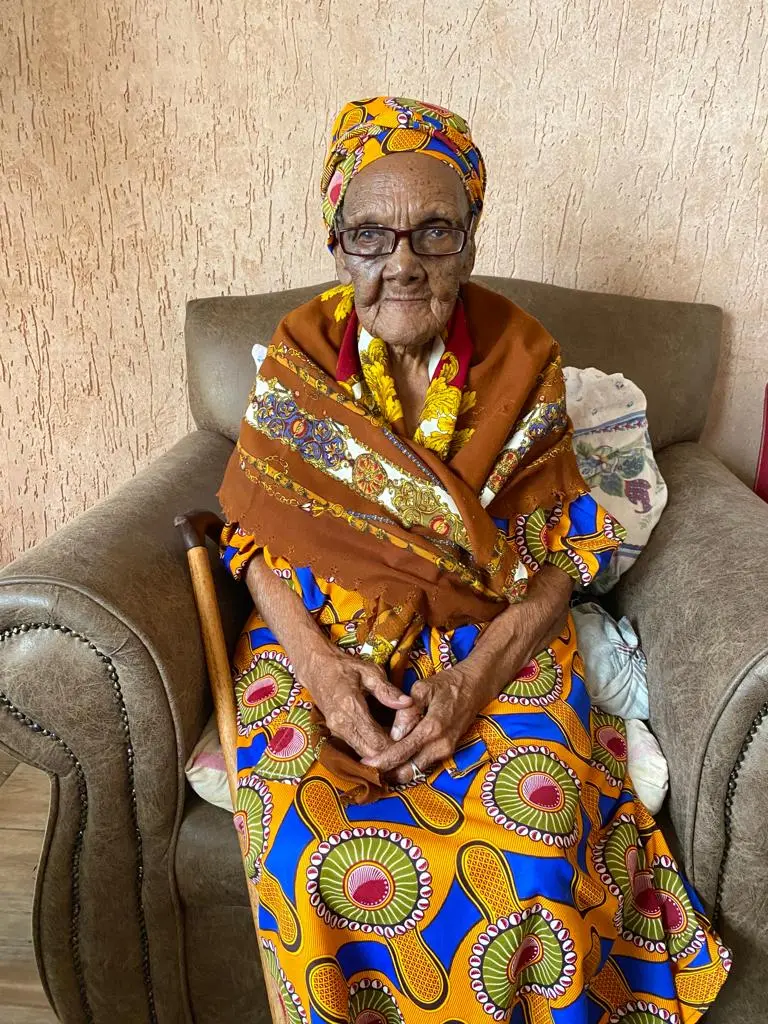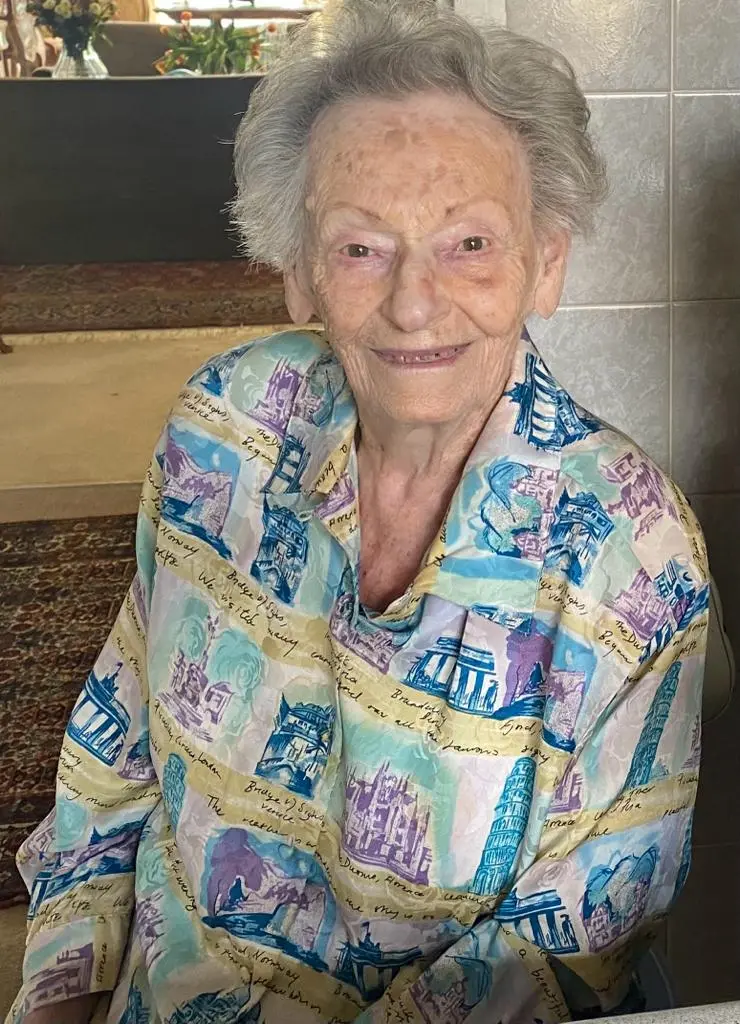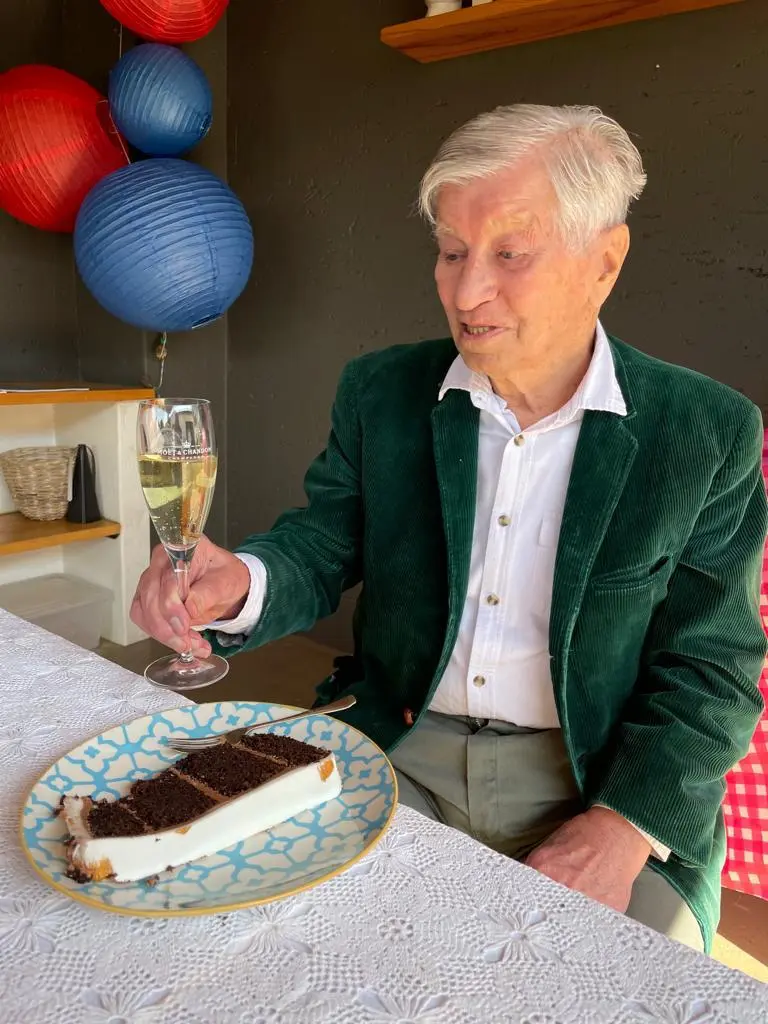THE CENTENARY LIFE
South Africa’s growing population of centenarians — what’s the secret to a healthy long life?

Why do some people live longer, centenary, happier lives, whereas others become unhappy and sick? To try and find answers Iza Trengove chatted to three South African centenarians.
Science has enabled us to slow down ageing. Despite this, few of us would want to live longer unless our lives are purposeful and happy. But what does it mean, really, to live a life of centenary?
Ellen Makhoba
Ellen Makhoba is an exceptional Zulu-speaking woman who was born in Umsinga, KwaZulu-Natal in 1914. She is now 109 and in good health; Makhoba washes and dresses herself and gets around with a walking stick. She lives in Soweto with her grandchildren and great-grand-children who cook for her. She got married at 21 and had six children.
She says having a family was the happiest time in her life, while her saddest times were the loss of her loved ones. Her husband died in 1965 after 30 years of marriage; she also lost five of her children to natural causes.
She attended school for about three years until her father died, and then had to help her mother grow vegetables and look after livestock. Makhoba continued to farm after she got married and earned an income by selling vegetables. Today, she spends most of her day reading the bible and praying; her unwavering faith helped her cope when times were tough and she believes God will always provide. When asked if she had any regret, she mentioned not being able to become a nurse; she explains that she is also sorry she was never able to have a bathroom in her house. In 2008, she became blind; it lasted for two years until her cataracts were removed.
Makhoba cites respect for one’s body and for life as the most important principles she lives by. Her diet consists of oats or Matabele porridge in the morning; she also enjoys unpolished rice mixed with a grated apple and carrot, and occasionally she adds chicken or mince. When she developed a cough a few years ago, a doctor advised her to quit all dairy products. Since then the cough has disappeared and now she only drinks water.
She doesn’t worry about the challenges we face in South Africa. She never expected to live to 109, so every morning when she wakes up, she thanks God that she is still alive.

Ellen Makhoba, 109, was born in Umsinga, in KZN in 1014. (Photo: Supplied, Iza Trengove)
Rose Norwich
Rose Norwich is now 102 and lives in an apartment in Johannesburg. Norwich was born here and happily married for 50 years. Her husband was a surgeon and she affectionally talks about the wonderful life they shared. They had a lot in common, travelling, entertaining and socialising.
Norwich had four children who now live overseas. For many years she visited them regularly but nowadays travelling has become too exhausting, she says. She often contemplated following them but decided against it because she wanted to stay in the place where she had spent her life — a year before her husband died they downscaled from their free-standing home. Norwich is a professional architect; for her Master’s thesis she documented all the synagogues in South Africa, and more recently, she has also written her life story.
For many years she was part of a team who researched and recorded the history of the South African Jewish community, which has since been published in six volumes. For most of her life, she has been involved in community service; she says her faith is important to her because it gives her a sense of belonging. She remembers their Friday evening gatherings fondly: the family would go to the synagogue and then get together for Shabbat. Now that her friends have passed away she cannot attend the high holidays; she also stopped driving in her eighties, and walking to the shopping centre in the area has also become impossible. She misses not being able to go to the shops so she orders what she needs online.
Getting around is a huge issue, but she has learnt how to get by. Norwich has a live-in carer who helps her with most of the daily chores. She finds living in an apartment on one’s own quite isolating and she cherishes the times when someone pops in or if her rabbi visits her. She spends much of her time on her computer and talks to her children on Zoom or WhatsApp.
Until now she has been relatively healthy although she has a pacemaker. A few years ago she had an important hernia operation and has been on a special plain diet since then. She is concerned that her eyesight is deteriorating but thankful that her hearing is still good. She talks with great appreciation about the easy life she has enjoyed. She says she cannot really pinpoint what has sustained her but feels thankful for the opportunities and blessings she has had.

Rose Norwich is now 102. She lives in a sunny apartment in Johannesburg. (Photo: Supplied, Iza Trengove)
Mike Browning
Mike Browning who is aged 101, lives in the frail care section of a retirement village in Johannesburg. On the day of our visit, he was dressed in a fashionable corduroy jacket he’s had for 52 years. He had it dry-cleaned in anticipation of this writer’s visit. Browning was born in London and moved to South Africa with his wife after the war; he was in his twenties and started working in sales.
They had one daughter who now lives in Cape Town. He was happily married for 65 years and talks fondly of his wife’s wholesome cooking. Browning’s never had a sweet tooth and kept fit by walking regularly; he also enjoyed birding and still has a keen interest in history and news. He feels grateful that he has managed to live healthily for so long, but adds that he didn’t do anything intentionally to reach 100.
He drove a car until he was 95 when his daughter convinced him to sell it. It was a great loss as he could no longer go for a drive or visit friends. Two years ago, he had a hip replacement after falling twice. He moved from his cottage to the frail care section after two falls. Since then he has not been able to walk without a walker and relies on the carers to help him get dressed. His daughter visits him at least four times a year and he sometimes sees his granddaughters who call him regularly. He finds it difficult to make new friends but is grateful for the care he receives — although he admits that at times it is lonely.
Browning is quite aware that he might not have many years left but is not afraid of dying or concerned about knowing if there is life after death. He is thankful for his fate and says life has been worthwhile; his advice to the younger generation is to grab opportunities that come their way.
These formidable centenarians confirm the trend that we are living longer. In fact, in South Africa people who were 100+ increased from 21,933 in 2022 to 22,525 in 2023. More than 9.2% of South Africans are older than 60. This accounts for about six million people. Life expectancy at birth in South Africa in 2020 was 67.96 for women and 62.18 for men.
This said, increasing life expectancy applies globally. It is estimated that life expectancy among South Korean women will be higher than 86·7 years by 2030 — and this is much the same in France, Spain and Japan. Overall, female life expectancy is 73.8 years and male life expectancy is 69.1 years.

Mike Browning, aged 101, lives in the frail care section of a retirement village in Johannesburg. (Photo: Supplied, Iza Trengove)
So, what lessons can we take from their stories?
It turns out there are no straight answers. A combination of genetics, lifestyle choices and luck is about as close as one will get to pinpointing the commonalities that guarantee a successful long life with a short phase of possible morbidity. That’s according to Professor Jaco Hoffman, a socio-gerontologist at the Ageing and Generational Dynamics in Africa (AGenDA) programme, Optentia Research Unit at the North-West University. He believes populations are living longer and better mainly as a result of advances in medical science and education about lifestyle choices.
When one tries to identify specific common behaviours to successful longevity it becomes a little trickier, as such research is complex and multifactorial. In many ways, the only common trait among centenarians is that those who have reached 100+ have already proven they are survivors.
Hoffman’s colleague, Professor Roos, agrees. She says “People, irrespective of age, differ on multiple levels. They have different temperaments, preferences, ways of relating and interacting with people. This applies to one’s environment or situation. It is also about how many risks you are prepared to take and how adventurous you are in exercising predictable choices”.
Dr India Butler, a specialist physician and sub-specialist Geriatrician at the University of the Witwatersrand, says from a medical perspective there are also no clear answers.
Similarly, we don’t understand why women often outlive men. From birth, girls are more likely to survive than boys. Indications are that it could be that the female hormone oestrogen has a protective effect. More generally, women are also less likely to indulge in risky behaviour such as drinking heavily or racing at a higher speed.
Hoffman and Butler concur that the secret to longevity is not about a specific single activity, but instead, that it could be about moderation, even though good genes could give one an initial advantage.
Hoffman’s best tips for ageing are to follow the lifestyles of people who live in Blue Zones. Blue Zones are identified regions or hotspots where people not only live longer, but seem to also live more fulfilled and healthier lives. This includes staying active, remaining socially and intergenerationally engaged, keeping an open mind, remaining inquisitive and doing “whatever floats one’s boat”. He says at the heart of adaptive ageing lies the ability to manage the inevitable losses, to “make smaller territories of life, larger and more beautiful” (Baltes, 1998). In other words, focusing on things one can do even if it means doing them with some support.
Butler agrees with Hoffman and says from a medical perspective there is increasing research that points to the importance of protecting one’s vascular health. This could be done by checking for diabetes and high cholesterol and managing one’s blood pressure as well as quitting smoking. Many age-related diseases are directly or indirectly affected by blood vessel health as stated in a previous interview. Chronic medical diseases also affect the way one ages and she believes it is not about perfection but rather about preventing or at least modifying risk factors that chip away at our health such as smoking, excessive alcohol, depression, isolation, inactivity, pollution, obesity and traumatic head injury. If they are reduced or eliminated, it could help prevent dementias such as Alzheimer’s and add healthy, happy years to a long life. DM/ ML




















 Become an Insider
Become an Insider
Comments - Please login in order to comment.